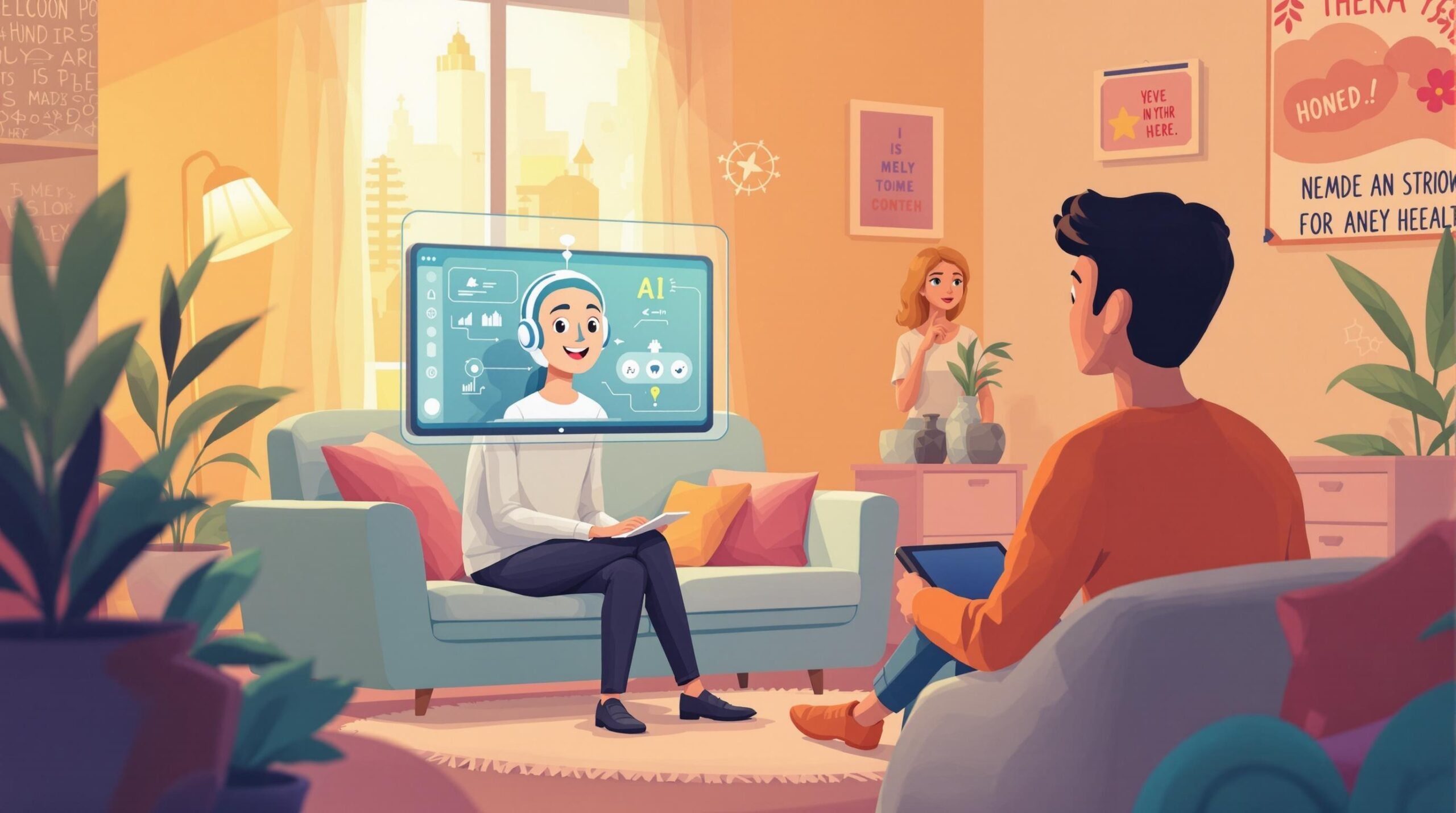Integrating artificial intelligence (AI) into mental health care transforms the delivery of support services. Virtual therapists, powered by AI, are increasingly providing accessible mental health assistance. This article explores the potential of AI in mental health and examines whether technology could replace human counselors.
Growing Need for Accessible Mental Health Services
Mental health disorders are on the rise globally, affecting millions of people across demographics. Access to quality mental health services remains a significant challenge due to geographical, economic, and cultural barriers. The increasing demand for affordable, accessible therapy has paved the way for technology-driven solutions like virtual therapists.
AI-powered platforms have the potential to bridge this gap in mental health care accessibility. They offer continuous support without the limitations of traditional therapy hours. This round-the-clock availability is particularly beneficial for those needing immediate assistance during crises.
AI Technology in Mental Health Care
AI in mental health care utilizes advanced algorithms to analyze vast amounts of data. Platforms can process text, voice, and even biometric data for accurate assessments. Machine learning models are trained on extensive datasets to understand user inputs and provide context-appropriate responses.
Virtual therapists use natural language processing (NLP) to engage users in conversation, offering therapeutic techniques and interventions. AI systems can simulate therapeutic methods like cognitive behavioral therapy (CBT), providing structured guidance. The adaptability and scalability of AI make it a compelling option for wide-reaching mental health support.
Advantages of AI in Mental Health
One significant advantage of AI in mental health care is its ability to reach underserved populations effectively. People in rural or remote areas with limited access to mental health professionals can benefit from virtual therapists. Additionally, those who face stigma or discomfort seeking in-person therapy may find virtual platforms more appealing.
AI-driven tools offer user anonymity, promoting a safe environment for honest expression. They can provide services at a reduced cost compared to traditional therapy, making mental health care more affordable for many. AI allows the systems to improve by learning from user interactions, enhancing support over time.
Potential Limitations and Ethical Concerns
Despite the advantages, there are considerable limitations and ethical concerns regarding AI’s role in mental health care. AI lacks the emotional intelligence, empathy, and nuanced understanding human therapists bring to sessions. While AI can simulate conversation, it cannot replace genuine human connection and understanding.
There are also concerns about data privacy and security when using AI platforms. Users’ sensitive mental health data must be protected against breaches or misuse. The potential bias in AI systems, stemming from the data they are trained on, can lead to inaccurate assessments and recommendations.
Integration with Human Therapists
A collaborative approach between AI and human therapists may be the most effective solution. AI can assist therapists by analyzing data and offering preliminary diagnostics, leaving more time for therapists to provide detailed care. By automating administrative tasks, AI allows therapists to focus on the relational aspects of therapy.
Virtual therapists can handle routine check-ins or offer resources between sessions, supplementing traditional therapy. This collaboration enhances patient care, blending technological efficiency with human empathy. As AI tools continue to develop, their role in complementing therapy will likely expand.
Virtual Therapists vs. Human Counselors
The question remains whether virtual therapists could eventually replace human counselors altogether. Current evidence suggests that AI can augment, but not replace, the therapeutic process humans provide. A human element is needed to address complex emotional and psychological issues.
Human therapists can adapt their approach based on body language, tone, and unspoken cues, which AI cannot replicate. They can provide personalized interventions based on deeply understanding the patient’s history and context. Until AI develops significantly, it will remain a supportive tool rather than a substitute.
Transitioning into the Future of Mental Health Care
The future of mental health care could see a seamless blend of AI and human elements. This balance allows for wide-ranging support while maintaining the essential human touch. As technology advances, ethical frameworks and regulatory measures must keep pace to ensure safe and effective AI integration.
Public awareness and education about the capabilities and limitations of AI in therapy are crucial. By understanding the role of virtual therapists, individuals can make informed decisions about their mental health care. As AI continues to evolve, ongoing research will determine its long-term impact.
Conclusion
The rising impact of AI in mental health presents a landscape of possibilities and challenges. While virtual therapists offer promising advancements in accessibility and efficiency, they cannot replace the human connection in therapy. Integrating AI into traditional practices can enhance mental health care delivery, offering a holistic approach.
Ultimately, the successful implementation of AI in mental health depends on its complementary use alongside human expertise. As technology advances, the mental health sector must prioritize ethical considerations and ensure quality care remains paramount. The future promises exciting innovations that could revolutionize mental health support for millions globally.

